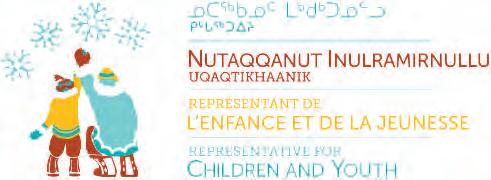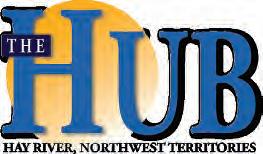ᓄᕙᒡᔪᐊᕐᓇᖅ ᓱᒃᑲᐃᒡᓕᒋᐊᖅᓯᕗᖅ ᐃᖏᕐᕋᓂᐅᔪᒥ
ᑐᕌᒐᒃᓴᖓᓂ
ᐳᕙᒡᓗᖕᓂᕐᒥ 2030−ᖑᕋᓱᖕᓂᖓᓂ
ᓱᓕ

ᓱᓕ
Whether eliminating tuberculosis by 2030 is still possible is the ‘big question,’ minister admits
INSIDE: Exploring Nunavut’s mining industry

ᐋᖅᑭᒃᑕᐅᔪᖃᖅᐳᖅ
NTI removes sisters from Nunavut

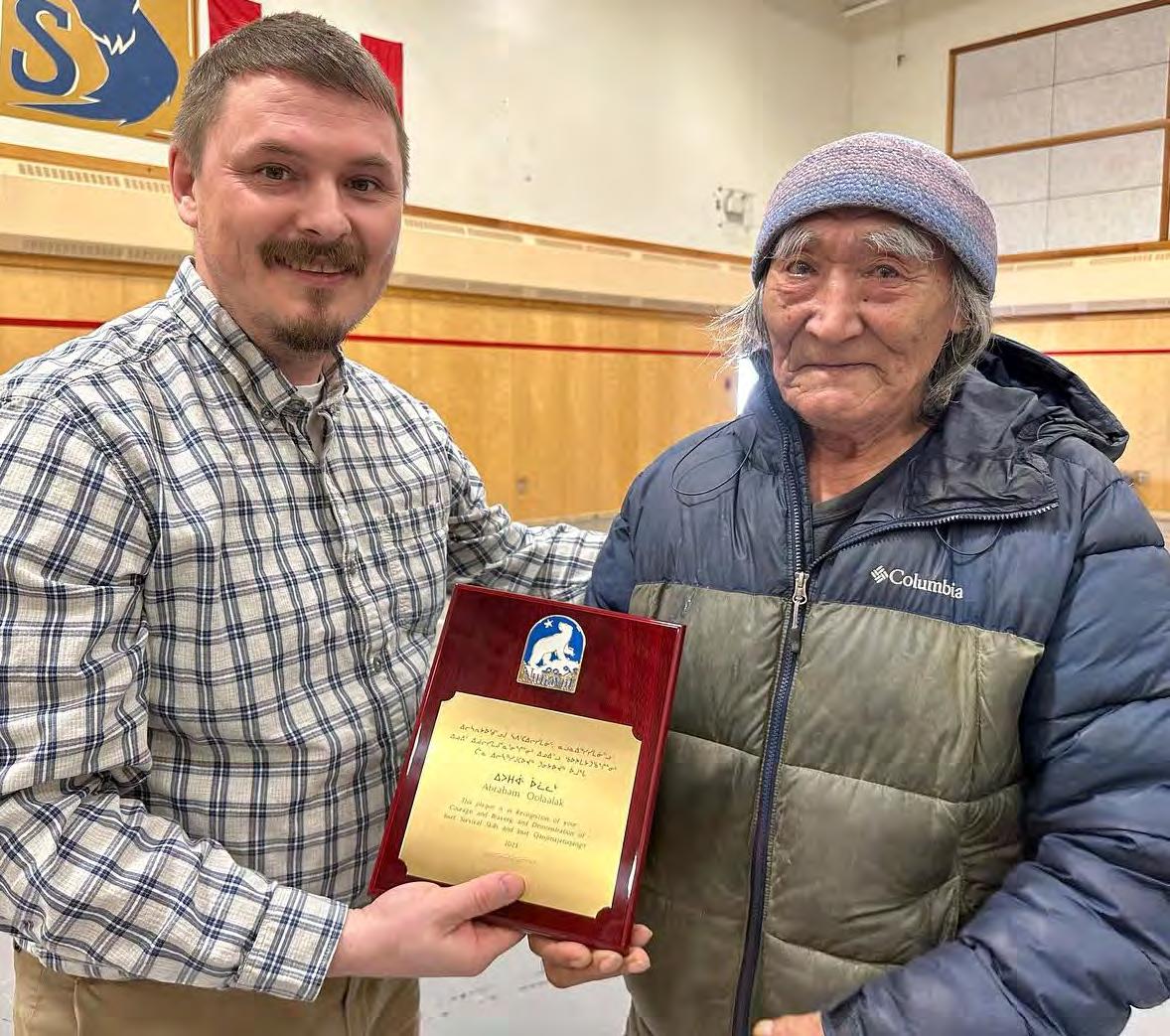
Agreement enrollment
Book takes children berry-picking
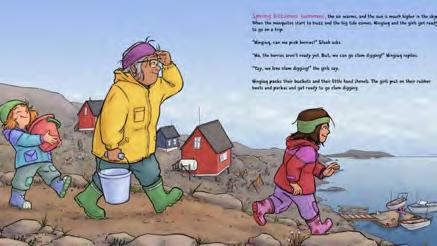
New housing partnership formed


 By Trevor Wright Northern News Services Iqaluit
By Trevor Wright Northern News Services Iqaluit

Berry picking with family is an activity many Nunavut families take part in every summer, and it’s what is at the heart of It’s Time for Berries!, a new children’s book published by Inhabit Media, penned by wife and husband team Ceporah Mearns and Jeremy Debicki.

The book is inspired by the relationship between their two daughters and their grandmother, Mearns’ mom.
Picking berries, clam digging, making jam, baking muffins are all part of the Nunavut summer experience.
“We spend a lot of time with our daughters and ningiuq (grandmother), and we do all of those things. Each season we are out berry-picking or claim digging or out fishing, these are things my mom lives to do, our girls love to do with my mom,” said Mearns, who lives in Iqaluit but is originally from Pangnirtung.
Mearns remembers her mom would go out berry-picking even in the rain to ensure there were always berries to use with jam, muffins, cheesecake and other goods.
“She really loves that, so we wanted to capture that in our book,” she said.


Mearns added her daughters growing up would come to understand the different seasons and when the family would go out harvesting for berries, fish, clams, or other foods from the land and she hopes other kids can relate to that.
“I hope it resonates, the illustrations just capture it so perfectly,” she said. “I grew up spending time doing those things with my grandmother and my daughters are so lucky to be able to do that with their grandmother.”
She really hopes It’s Time for Berries presents an opportunity for families to spend time together. Whether it’s reading the book itself, or inspiring others to go out and forage for berries.
“I hope children and fami-

lies enjoy reading that together and also just enjoy spending time together. Hopefully, it’ll inspire families to go and spend time out on the land and harvest the fruits of our
land,” she said.
“The joy that comes from picking berries and harvesting clams, going out fishing, those are the real joys of our lives that we can do to spend time
with each other and I know many other families feel that way.”
It’s Time for Berries!, can be found on the Inhabit Media website and on Amazon. It
is available in both Inuktitut and English, as well as in hardcover and paperback forms.
The book was illustrated by artist Tindur

ᐊᐃᑉᕆᓕ 12−ᒥ, ᓄᓇᕗᒻᒥ ᓯᕗᓕᖅᑎ P.J.
ᐊᕿᐊᕈᖅ ᐃᓕᓴᖅᓯᓚᐅᖅᐳᖅ ᐊᒻᒪ ᑐᓂᓯᓂᖃᓚᐅᖅᐳᖅ ᐊᒃᓱᕈᕐᓂᐅᔪᓂ ᓴᓂᕋᔭᖕᒥ ᐸᖅᓴᐃᔩᑦ ᐊᒻᒪ ᓴᐳᔾᔨᔩᑦ ᑲᑎᙵᓂᐅᔪᓂ ᓴᐳᔾᔨᓚᐅᖅᑐᓂ ᐱᖓᓱᓂ ᐊᖑᓇᓱᒃᑎᓂ ᐊᐃᕝᕙᒐᓱᖕᓂᐅᔪᒥ ᐱᕐᕈᓗᐊᕿᓂᐅᔪᒥ ᒫᔾᔨᒥ. “ᖁᕕᐊᕐᔪᐊᖅᐳᖓ ᐃᓕᓴᖅᓯᓂᕐᒥ ᑲᑉᐱᐊᑦᑕᐃᑦᑑᓂᕐᒥ ᐊᒻᒪ ᐊᔪᙱᓐᓂᐅᔪᓂ ᐸᖅᓴᐃᔩᑦ ᐊᒻᒪ ᓴᐳᔾᔨᔩᑦ ᑲᑎᙵᓂᐅᔪᓂ ᓴᓂᕋᔭᖕᒥ ᐊᐅᓚᑕᐅᔪᓂ ᔪᐊᔾ ᐃᓄᒃᓱᖕᒧᑦ,” ᑎᑎᕋᓚᐅᖅᐳᖅ ᓄᓇᕗᒻᒥ ᓯᕗᓕᖅᑎ P.J. ᐊᕿᐊᕈᖅ. ᑎᑎᕋᖅᓯᒪᔪᒥ ᐅᖃᐅᓯᒃᓴᓕᐊᖑᔪᒥ. ᓯᕗᓕᖅᑎ ᐃᓚᒋᐊᖅᓯᓚᐅᖅᐳᖅ ᐊᒃᓱᕈᕐᓂᐅᔪᓂ ᐊᑭᓕᖅᓱᖅᑕᐅᓇᑎᒃ ᐃᑲᔪᕐᓂᕐᒥ ᐸᖅᓴᐃᔩᑦ ᐊᒻᒪ
ᓴᐳᔾᔨᔩᑦ ᑲᑎᙵᓂᐅᔪᓂ ᑕᐃᒃᑯᓇᑎᑐᑦ ᐱᓪᓚᕆᐅᕗᑦ

ᓴᐳᔾᔨᓯᒪᓂᕐᒥ ᓄᓇᕗᒻᒥ ᓄᓇᓕᐅᔪᓂ ᑕᐃᑲᓂ ᐊᒻᒪ
ᓄᓇᒥ. “ᐆᒪᔪᓐᓇᕐᓂᖏᓐᓂ ᐊᔪᙱᓐᓂᖏᑦ ᑲᒪᓇᕐᔪᐊᖅᐳᑦ.
ᐊᑭᓕᖅᓱᖅᑕᐅᓇᑎᒃ ᐃᑲᔪᖅᑎᑦ ᐅᑯᓇᑎᑐᑦ ᐊᑐᖅᐸᒃᑐᓂ ᐱᕕᒃᓴᖃᕐᓂᖏᓐᓂ ᐊᒻᒪ ᐱᓕᕆᔾᔪᑎᖏᓐᓂ ᓴᐳᔾᔨᓯᒪᓂᕐᒥ ᓄᓇᓕᑦᑎᓐᓂ. ᑕᒪᒃᑭᓄᑦ ᐸᖅᓴᐃᔩᑦ ᐊᒻᒪ ᓴᐳᔾᔨᔩᑦ ᐊᑭᓕᖅᓱᖅᑕᐅᓇᑎᒃ ᐃᑲᔪᖅᑎᓄᑦ ᓄᓇᕗᒻᒥ, ᓇᒃᓯᐅᔾᔨᕗᖓ ᐃᒃᐱᒍᓱᑦᑎᐊᕐᓂᓐᓂ ᐊᒻᒪ ᖁᔭᓕᓂᓐᓂ,”
ᐊᕿᐊᕈᖅ ᐃᓚᒋᐊᖅᓯᓚᐅᖅᐳᖅ.
ᑐᓂᔭᐅᓂᐅᔪᓂ ᑐᓂᔭᐅᓚᐅᖅᐳᑦ ᐃᓄᒃᓱᖕᒧᑦ
ᐊᒻᒪᓗᑦᑕᐅᖅ ᐊᓯᖏᓐᓂ ᐃᓚᒋᔭᐅᔪᓄᑦ ᓴᓂᕋᔭᖕᒥ
ᐸᖅᓴᐃᔩᑦ ᐊᒻᒪ ᓴᐳᔾᔨᔩᑦ ᑲᑎᙵᓂᐅᔪᓄᑦ. ᐅᑯᐊ ᐃᓚᖃᖅᐳᑦ, ᑭᓯᐊᓂ ᑭᒡᓕᖃᕐᓇᓂ ᐅᑯᓄᖓ, ᐊᐃᑉᕋᕼᐋᒻ ᐅᓪᓚᓛᖅ, ᑲᐃᔪᓪ ᐃᓯᒐᐃᑦᑐᖅ, ᓴᐃᒪᓐ ᑰᓕ, ᑕᐃᒨᓂ
ᐱᑯᔭᒃ, ᐹᓪ ᓇᖕᒪᓕᒃ, ᔫᓇ ᑯᑭᒃ, ᐄᐊᓐ ᐊᓕᐊᓇᖅ, ᓵᓚᒪᓐ ᐊᓗᕈᑦ ᐊᒻᒪ ᓵᓐ ᓇᑐᒃ.
ᐃᓄᒃᓱ, ᐅᖃᓚᐅᖅᐳᖅ “ᐃᓗᐊᑦᑎᐊᓚᐅᖅᐳᖅ”
ᐃᓕᓴᕆᔭᐅᓂᕐᒥ ᓯᕗᓕᖅᑎᒧᑦ ᐊᒻᒪ ᓄᓇᕗᒻᒥ ᒐᕙᒪᒃᑯᓐᓂ ᐸᖅᓴᐃᓂᖏᓐᓄᑦ ᐊᒻᒪ ᓴᐳᔾᔨᓂᕐᒧᑦ ᐊᒃᓱᕈᕐᓂᖏᓐᓄᑦ.

ᐃᓚᒋᐊᖅᓯᓚᐅᖅᐳᖅ ᐸᖅᓴᐃᔩᑦ ᐊᒻᒪ ᓴᐳᔾᔨᔩᑦ ᐊᒃᓱᕈᕐᓂᐅᔪᓂ ᐊᔪᕐᓇᒃᑲᓐᓂᕈᓐᓇᖅᐳᖅ ᐊᓯᖏᖅ ᓴᖅᑭᙱᒃᑳᖓᒥᒃ, ᐅᖃᖅᖢᓂ ᑲᑎᙵᓂᐅᔪᒥ ᐱᓕᕆᓂᐅᕗᖅ ᐃᑲᔪᕐᓂᕐᒧᑦ ᐊᓯᖏᓐᓂ. “ᑲᑎᙵᓪᓗᑎᒃ ᐱᓕᕆᓂᕐᒥ ᐊᔪᕐᓇᙱᑎᑦᑎᒃᑲᓐᓂᓲᖑᕗᖅ,”
ᐅᖃᓚᐅᖅᐳᖅ ᐃᓄᒃᓱᒃ, ᐃᓚᒋᐊᖅᓯᓪᓗᓂ ᑕᐃᒃᑯᐊ ᐊᑭᓕᖅᓱᖅᑕᐅᓇᑎᒃ ᐃᑲᔪᖅᐸᒃᑐᑦ ᓄᓇᕗᒻᒥ ᐸᖅᓴᐃᔩᑦ ᐊᒻᒪ ᓴᐳᔾᔨᔩᑦ ᑲᑎᙵᓂᐅᔪᓂ ᐃᑲᔪᕈᒪᓂᖃᕆᐊᖃᖅᐳᑦ ᐃᓄᖕᓂ ᓄᓇᒥ ᐊᑭᓕᖅᑕᐅᙱᓪᓗᑎᒃ. “ᐃᓱᒪᖅᓱᕈᑕᐅᕗᖅ ᐃᓄᖕᓄᑦ ᐃᑲᔪᕈᒪᓂᖃᕈᑎᒃ ᐊᖑᓇᓱᒃᑎᓂ ᓴᐳᔾᔭᐅᔭᕆᐊᓕᖕᓂ,” ᐅᖃᓚᐅᖅᐳᖅ. “ᕿᓂᖅᐸᙱᓚᒍᑦ ᑮᓇᐅᔭᓂ.” ᑐᓂᔭᐅᓂᐅᔪᑦ ᑐᓂᔭᐅᓚᐅᖅᐳᑦ ᓴᓂᕋᔭᖕᒥ ᐊᕐᓇᖅᔪᐊᖅ ᐃᓕᓐᓂᐊᕐᕕᖓᓂ ᐊᕿᐊᕈᕐᒧᑦ ᓯᕗᓕᖅᑎᐅᑉ ᑐᒡᓕᖓᓂ ᐹᒥᓚ ᒍᕉᔅ ᐊᒻᒪ ᐊᒥᑦᑐᕐᒥ ᒪᓕᒐᓕᐅᖅᑎ ᐃᓚᐅᖃᑕᐅᓪᓗᑎᒃ.
ᓯᕗᓕᖅᑎᐅᑉ ᐳᓚᕋᕐᓂᖓᓂ ᓴᓂᕋᔭᖕᒧᑦ ᐃᓚᒋᔭᐅᓚᐅᖅᐳᖅ ᐊᖏᓂᖅᓴᐅᔪᒥ ᐳᓚᕋᕐᓂᐅᔪᒥ ᓄᓇᓕᖕᒧᑦ, ᐃᓚᖃᓚᐅᖅᑐᒥ ᐳᓚᕋᕐᓂᐅᔪᓂ ᐅᐊᖕᓇᒥ ᐃᓂᖅᑎᕆᓂᕐᒧᑦ ᐃᓂᐅᔪᓄᑦ ᓄᓇᓖᑦ ᖃᓂᒋᔭᖓᓂ, ᐊᒻᒪᓗᑦᑕᐅᖅ ᐳᓚᕋᕐᓂᐅᔪᓂ ᕼᐋᒻᓚᒃᑯᑦ ᑎᑎᕋᕐᕕᖓᓐᓄᑦ, ᐊᕐᓇᖅᔪᐊᖅ ᐃᓕᓐᓂᐊᕐᕕᖓᓄᑦ ᐊᒻᒪ ᓴᓂᕋᔭᖕᒥ ᐊᕕᒃᑐᖅᓯᒪᓂᐅᔪᒥ ᐃᓕᓐᓂᐊᖅᑐᓕᕆᔨᒃᑯᑦ ᑲᑎᒪᔨᖏᓐᓄᑦ ᐃᒃᓯᕙᐅᑕᖓᑕ ᑐᒡᓕᐊᓂ ᓇᒡᓕᖕᓂᖅ ᐃᓄᒃᓱᖕᒧᑦ.
On April 12, Nunavut premier P.J. Akeeagok recognized and awarded the efforts of the Sanirajak search and rescue team who rescued three hunters during a walrus hunting accident in March.





“I’m thrilled to recognize the bravery and skill of the search and rescue team in Sanirajak led by George Innuksuk,” wrote Nunavut premier P.J. Akeeagok. in a written statement.
The premier added the efforts of volunteer search and rescue teams like these are essential for safeguarding Nunavut communities on and off the land.
“Their survival skills are incredible. It’s
volunteers like these who use their time and tools to safeguard our communities.
To all search and rescue volunteers in Nunavut, I send my respect and gratitude,” Akeeagok added.
Awards were presented to Innuksuk as well as the other members of the Sanirajak search and rescue team. These include, but are not limited to, Abraham Oolalak, Kyle Issigaitok, Simon Curley, Timonie Pikuyak, Paul Nagmalik, Jonah Kukkik, Ian Allianaq, Simon Allurut and Sean Nattuk.
Innuksuk, said it felt “very good” to be recognized by the premier and the Government of Nunavut for their search and rescue efforts.
He added search and rescue efforts can be more difficult when others don’t show up, saying it takes a group to help others.
“Teamwork makes it way easier,” said Innuksuk, adding those who volunteer with Nunavut search and rescue teams must be willing to help people out on the land with no pay.
“That is up to the people if they are willing to help hunters that need to be rescued,” he said. “We do not seek any money.”
The awards were presented in Sanirajak’s Arnaqjuaq School by Akeeagok with deputy premier Pamela Gross and Amittuq MLA also present.
The premier’s visit to Sanirajak was part of a larger visit to the community, which included visits to North Warning sites near the community, as well as visits to the hamlet office, Arnaqjuaq School and the Sanirajak District Education Authority vice-chair Nagleena Inuksuk.
ᓄᓇᕗᒻᒥ ᓯᕗᓕᖅᑎ P.J ᐊᕿᐊᕈᖅ, ᓴᐅᒥᖕᒥ ᑐᓂᓯᕗᖅ ᐊᑭᓕᖅᓱᖅᑕᐅᓇᑎᒃ ᐃᑲᔪᕐᓂᕐᒥ ᐸᖅᓴᐃᔩᑦ ᐊᒻᒪ ᓴᐳᔾᔨᔩᑦ ᑐᓂᔭᐅᓂᐅᔪᒥ ᓴᓂᕋᔭᖕᒥᐅᑕᐅᔪᒧᑦ ᐃᓄᑐᖃᕐᒧᑦ ᐊᐃᑉᕋᕼᐋᒻ ᐅᓪᓚᓛᖕᒧᑦ.
ᓴᓂᕋᔭᖕᒥ ᐸᖅᓴᐃᔩᑦ ᐊᒻᒪ ᓴᐳᔾᔨᔩᑦ ᐱᓕᕆᔨᐅᔪᖅ ᔪᐊᔾ ᐃᓄᒃᓱᒃ, ᑕᓕᖅᐱᖕᒥ, ᐅᖃᓚᐅᖅᐳᖅ “ᐃᓗᐊᑦᑎᐊᓚᐅᖅᐳᖅ”
ᐃᓕᓴᕆᔭᐅᓂᕐᒥ ᓄᓇᕗᒻᒥ ᐊᒻᒪ ᓯᕗᓕᖅᑎᒧᑦ P.J. ᐊᕿᐊᕈᕐᒧᑦ, ᓴᐅᒥᖕᒥ.
P.J. ᐊᕿᐊᕈᖅ, ᓄᓇᕗᒻᒥ ᓯᕗᓕᖅᑎ, ᓴᐅᒥᖕᒥ, ᑐᓂᓯᕗᖅ ᓄᓇᕗᒻᒥ ᐸᖅᓴᐃᔩᑦ ᐊᒻᒪ ᓴᐳᔾᔨᔩᑦ ᑐᓂᔭᐅᓂᐅᔪᒥ ᓴᓂᕋᔭᖕᒥ ᐸᖅᓴᐃᔩᑦ ᐊᒻᒪ ᓴᐳᔾᔨᔩᑦ ᐊᑭᓕᖅᓱᖅᑕᐅᓇᑎᒃ ᐃᑲᔪᕐᓂᕐᒥ ᓴᐃᒪᓐ ᑰᓕᒧᑦ, ᑕᓕᖅᐱᖕᒥ.
ᓯᕗᓕᖅᑎ P.J. ᐊᕿᐊᕈᖅ ᑐᓂᓯᑎᓪᓗᒍ ᑐᓂᔭᐅᓂᐅᔪᒥ.
ᓴᓂᕋᔭᖕᒥ ᐸᖅᓴᐃᔩᑦ ᐊᒻᒪ ᓴᐳᔾᔨᔩᑦ ᐊᑭᓕᖅᓱᖅᑕᐅᓇᑎᒃ ᐃᑲᔪᕐᓂᕐᒥ ᑲᐃᔪᓪ ᐃᓯᒐᐃᑦᑐᖅ, ᑕᓕᖅᐱᖕᒥ ᑐᓂᔭᐅᕗᖅ ᑐᓂᔭᐅᓂᐅᔪᒥ ᓄᓇᕗᒻᒥ ᓯᕗᓕᖅᑎ P.J. ᐊᕿᐊᕈᕐᒧᑦ.
The organization responsible for enrolling Inuit under the Nunavut Agreement has removed twin sisters from its list in what is calls a first-of-its-kind case.
Nunavut Tunngavik Incorporated announced March 30 it was investigating alleged fraud involving the enrolment of 24-year-old Nadya and Amira Gill.

The organization said the women were enrolled in 2016 after their mother claimed she adopted them from an Inuk woman. That woman’s family recently disputed the claim and said they have no biological relationship to the twins.
Nunavut Tunngavik Incorporated said in an April 13 statement that it asked the Gills to provide evidence they have an Inuk birth parent but did not receive a response. The Iqaluit community enrolment committee decided to remove them from its list April 6.
The Qikiqtani Inuit Association, a regional group representing about half of Inuit in Nunavut, said an internal investigation found a 2018 enrolment application from Manji in which she claimed she had been adopted by two Inuit from Iqaluit. The association said that application was rejected by the enrolment committee due to lack of supporting documentation and based on their knowledge of the community.

Nunavut Tunngavik Incorporated said its enrolment process is robust and it’s taking additional measures to strengthen its application and review process to prevent potential future fraud.
Noah Noah is the son of the woman the twins claimed to be their birth mother. He said in a statement on Twitter last week that it was a shock when his family learned Manji said she adopted the twins from his mother.
He said his family was not previously aware the sisters existed, but Manji is known to his family and his mother is a vulnerable person.
“It is harmful to Indigenous communities to

claim and benefit from falsely claiming Indigenous identity,” he wrote. “Our family has not asked to be part of this conversation, but as we have been brought into it, we are seeking truth, justice, and accountability.”
Liam Gill, an older brother of the sisters, said in an email that to the best of his knowledge they share the same biological parents, Manji and Gurmail Gill.
He said they were not raised with any specific culture and he does not identify as Indigenous nor have status. He said his father immigrated to Canada from England and his mother from Tanzania.
Durant Barristers, an Ontario law firm where Nadya Gill was working as an articling student in sports law, said she has been placed on leave of absence pending an internal investigation.
“We find it entirely unacceptable for anyone to falsely claim to be Indigenous and use it for personal gain,” Erin Durant said in an email.
Amira Gill attended Queen’s University, where she studied civil engineering and was granted an award, scholarship and two bursaries designated for Indigenous students.
The sisters claimed to be Inuit in several news articles in 2021, when they launched Kanata Trade Co., an online business that sold masks designed by Indigenous artists.
The Canadian Council for Aboriginal Business said it suspended Kanata’s certification pending Nunavut Tunngavik Incorporated’s investigation.
It said it received and verified proof of Indigenous identity and ownership before granting the certification.
“We have confidence in our process and follow best practices,” Tabatha Bull, president and chief executive officer, said in a statement. “If anything, this shows just how much the public needs and values transparency and integrity. We value that too.”
Nunavut’s health minister says the Covid-19 pandemic disrupted efforts to eliminate tuberculosis in Inuit communities, and questions remain over whether targets to stamp out the disease can be met.

“Covid has had a huge impact on every area of health care, and that includes TB,” said John Main. “While we were putting so much effort toward dealing with Covid, we did have to slow the pace of work on other areas.”
Five years ago, Ottawa and Inuit Tapiriit Kanatami, a national advocacy group, announced plans to reduce active tuberculosis across Inuit Nunangat by at least half to no more than 100 cases per 100,000 people by 2025, and eliminate it entirely by 2030. Inuit Nunangat, or Inuit homeland in Canada, is made up of more than 50 communities in Nunavut, the Northwest Territories, Quebec and Labrador.
Public Health Agency of Canada data indicates reported rates of active tuberculosis dropped significantly among Inuit between 2019 and 2020 from 188.7 cases per 100,000 to 72.2. Health officials in Inuit Nunangat, however, say that’s partly due to reduced screening.
Indigenous Services Canada says the rate of tuberculosis among Inuit increased to 135.1 in 2021.
Main said Nunavut is now “getting things back on track.” The territory signed a tuberculosis information sharing agreement with Nunavut Tunngavik Inc., a group representing Nunavut Inuit, in November.
Main said they are also working to finalize a three-year plan to guide elimination efforts.
“It’s been made clear to me the amount of hardship and stigma that can be associated with TB, as well as the elements of historical trauma around tuberculosis,” he said.
“That’s what we’re including as part of our work at every level, is this understanding of our role as healthcare providers and that sometimes we need to listen and not just talk.”
Main said whether the 2025 and 2030 tuberculosis elimination targets will be met is “the big question.”
“At this point I can’t say, but it’s certainly not going to stop us from doing everything we can towards that goal,” he said. “I’m not going to say that I can look into a crystal ball and see what’s going to happen in the next two years, but I’m hopeful, cautiously optimistic I would say.”
The Nunavik Regional Board of Health and Social Services said community screenings have resumed in the region and it is working to better target services, including recruiting local public health officers. As of January, a vaccine that protects young children against complications and severe forms of
tuberculosis has been available in all communities in Nunavik.
While the risk of developing tuberculosis in Canada is very low, rates are higher among Inuit.
The latest federal budget has earmarked $16.2 million over three years to fight tuberculosis in Inuit communities. Inuit Tapiriit Kanatami said that’s roughly a quarter of what’s needed for the next phase of tuberculosis elimination.
Indigenous Services Minister Patty
Hajdu said the budget’s approach is “incremental but also substantial” and comes with other investments such as bilateral health transfer agreements with the provinces and territories.
“They’re realistic in the sense that if everybody is determined to reach those targets then we can,” she said. “It is going to require everybody to be very focused.”
Iqaluit’s Francophone Centre is back with a newly renovated building after around nine months of work. Aside from a few finishing touches still going on, it is fully operational for community use.
“We were able to reopen and have fun at the Franco-Centre, it’s great,” said Goump Djalogue, president of the Association des Francophones du Nunavut (AFN).
For one of the Franco-Centre’s first events, it made its return with a bang, hosting the revival of the Iqaluit Cabaret Burlesque Show on April 15.
While there aren’t any specific dates for future shows, Djalogue said to keep an eye out for upcoming future events they’ve got planned.
“We are really resuming our regular activities, concerts, the Jam (Cafe), Artcirq, that’s exciting as well. Many interesting activities, we should be able to publish our pro-
gram very soon as well,” he added.
Prior to renovations, the Francophone Centre faced numerous challenges in relation to the age of the structure.
“We had plumbing and facility issues as well, heating. It’s an old, old building, those (issues) were normal,” explained Djalogue.
Heritage Canada, the Government of Nunavut’s Department of Economic Development and Transportation and CanNor all contributed toward the Francophone Centre’s renovations.
“To me, it’s a place where a lot of cultural exchange happens at the Franco-Centre,” said Djalogue, “the Franco-Centre has always been that place where you meet long-term residents or you meet people who have just landed in town.”
Now, with renovations pretty much finished, the Francophone Centre is back as an indispensable part of the community.
“Come, come see us, come to the Franco-Centre. Enjoy it, come mingle, enjoy this newly renovated cultural place for us, as a community.”
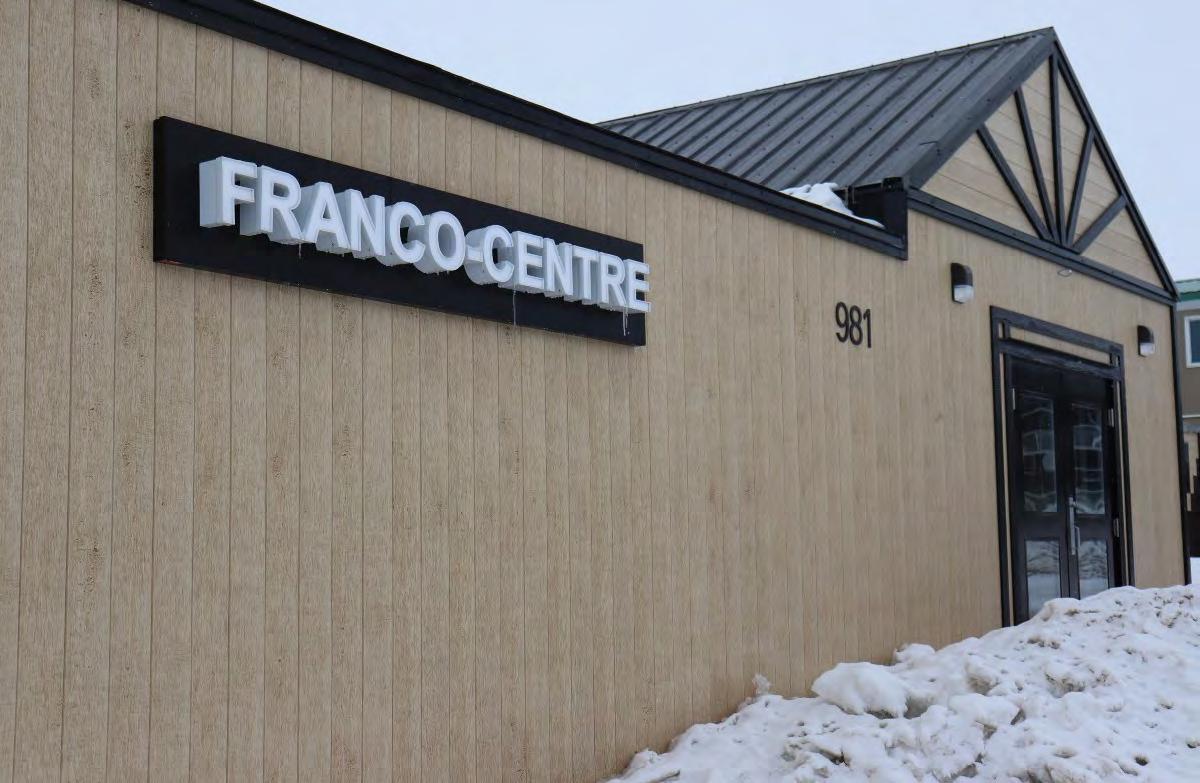
Published Mondays
Office: 626 Tumiit Plaza, Iqaluit, NU
Box 28, X0A 0H0
Reporter: Trevor Wright
Translator: Ruth Kadlutsiak
Advertising:
Phone: (867) 979-5990
Fax: (867) 979-6010
Toll free: (855) 447-2584
Email: editor@nunavutnews.com
Website: www.nunavutnews.com
Kivalliq office: Box 657, Rankin Inlet, NU, X0C 0GO
Phone: (867) 645-2862
Email: kivalliqnews@nnsl.com
CMCA AUDITED
Website: www.nnsl.com/kivalliqnews
Production facilities: Box 2820, Yellowknife, NT, X1A 2R1
Phone: (867) 873-4031
Fax: (867) 873-8507
Email: editorial@nnsl.com advertising@nunavutnews.com circulation@nnsl.com
Website: www.nnsl.com
FOUNDER (1934-2018):
J.W. (Sig) Sigvaldason
GROUP PUBLISHER
Mike W. Bryant – mike.bryant@nnsl.com
MANAGING EDITOR
James McCarthy – james.mccarthy@nnsl.com
ACCOUNTING: receivables@nnsl.com
Sophie Wu
EDITORIAL BOARD:
Mike W. Bryant • James McCarthy
Derek Neary
NEWS EDITORS
James McCarthy • Sean Fraser
EDITORIAL PRODUCTION: editor@nunavutnews.com
Sports: sports@nnsl.com
ADVERTISING PRODUCTION
Production manager: Jennifer Reyes
ADVERTISING
advertising@nunavutnews.com
All departments: advertising@nnsl.com
National: James Boylan
Classified Advertising: classifieds@nnsl.com
Director of product development: Laura Whittle
Admin ad controller: Liezrie Maala
CIRCULATION – circulation@nnsl.com
Circulation Director: Edison Mathew
Circulation clerk: Bill Hutchinson
Subscriptions: One year mail $75
Online (entire content) $50/year
We acknowledge the financial support of the Government of Canada.
Nous reconnaissons l'appui financier du gouvernement du Canada.
your letter off at our office at 102 Tumiit Plaza. All letters submitted must be signed with a return address and daytime telephone number so that we can confirm it came from you.
Not all letters will necessarily be published. Preference is given to short letters of broad interest or concern. Letters of more than 200 words, open letters and those published elsewhere are seldom used. We reserve the right to edit for length or taste and to eliminate inaccurate or libelous statements.
The Nunavut Housing Corporation announced a partnership agreement with the Community Housing Transformation Centre in Winnipeg on April 20 to help support the growth of the community housing sector as part of the Nunavut 3000 housing plan. The partnership seeks to encourage “outside the box” thinking from non-governmental organizations (NGOs) in terms of building the territory’s commu -
nity housing sector.
“We see this as the first step of an open process that is expected to involve other interested parties as it evolves,” said Eiryn Devereaux, president and CEO of the Nunavut Housing Corporation.

“The goal is to allow for the best possible alignment of the different resources and objectives as well as simplifying the funding process for Nunavut’s community housing sector,” Devereaux added.
The agreement seeks to build capacity in Nunavut’s community housing sector by sharing and
leveraging resources as well as supporting NGOs.
Part of the partnership agreement is the establishment of the Nunalingni Piruqpaalirut fund, meaning “growth in our land.” The fund is designed to support NGOs who have affordable housing ideas, initiatives or projects and need financial backing to move them to the next stage.
The current amount available until March 31, 2024 is $1.36 million with the NHC and the Community Housing Transformation Centre currently working on im-
The Community Housing Transformation Centre is a national nonprofit based in Montreal with experience delivering community housing across Canada with a focus on sustainability and growth.
Projects eligible to apply for a grant fall under the following funding streams:
-capacity building
-planning and pre-development
-research and innovation
Application intake for the Nunalingni Piruqpaalirut fund is expected to begin in July.
Nunavut News presents the Amazing On-the-Land contest, generously sponsored by NCC Investment Group Inc., visit www.nccig.ca today.



The post on our page with the most reactions each week will win $100. Send in your entry to Nunavut News by Facebook messaging.



 By Stewart Burnett Northern News Services Kivalliq Local Journalism Initiative
By Stewart Burnett Northern News Services Kivalliq Local Journalism Initiative
Last year saw a high number of blizzards in the Kivalliq, but a very different story has played out this season.
“Overall, we’ve definitely seen way less blizzards this year,” said Jesse Wagar, meteorologist with Environment and Climate Change Canada.
She estimated there have been four or five
blizzards in Rankin Inlet so far this year, with the prerequisites being visibility reduced to 400 metres or less, winds 40 kilometres per hour or higher and at least six hours of reduced visibility.



Wagar said part of what played into that this year was an “incredibly warm” November and early December in the area.
“When the temperatures get warmer, it is harder to blow snow around, so I suspect that is part of it,” said Wagar, admitting that in January and February the temperatures plummeted, and as previously reported,

Rankin Inlet experienced a few record-cold days in February.
The other variable impacting the number of blizzards is average wind speed, said Wagar.
“To really get the low visibilities, not only do we need snow available to blow around, but we need strong winds, and the winds this year or at least through the winter months have been lighter than they have been previous years,” she said.
Between those two variables, the conditions haven’t been conducive to creating
blizzard conditions in Rankin and much of the Kivalliq.
Due to the number of variable statistics, numbers are a bit tricky, but Wagar said it appears this year rivals 2019 and 2010 for fewest blizzards in recent history.
This year is also expected to be the last La Nina winter after three in a row, as the conditions will be moving to an El Nino system later in 2023.
Wagar added that there could still be more blizzards as winter and spring in the Kivalliq wrap up.

With grocery prices at an all-time high, Canadians were paying close attention to the 2023 federal budget and what relief it might bring.

The promise to address affordability materialized as a new “grocery rebate” that will provide money directly to low-income Canadians. This policy takes the right kind of approach to supporting food-insecure Canadians, but it doesn’t go far enough to address the large and longstanding problem of household food insecurity in this country. Using population survey data collected by Statistics Canada, we estimated that 5.8 million Canadians, including 1.4 million children, lived in households that struggled to afford the food they need due to inadequate finances in 2021. That means one in six households in Canada’s 10 provinces were food insecure. Similarly high rates were charted in 2019 and 2020.
With the recent unprecedented inflation, these statistics can only have worsened.

Direct cash transfer

Although this new measure is being called a grocery rebate, it’s a direct cash transfer to low-income Canadians, delivered through the GST credit system. From what we can see from the budget, the grocery rebate will be almost identical to the one-time GST topup credit provided in late 2022 as part of the federal government’s Affordability Plan.
As a targeted income support, the grocery rebate is a step in the right direction for addressing food insecurity.
It recognizes that income inadequacy is at the root of the challenges faced by Canadians who are unable to afford the food they need. The only policy interventions shown to move the needle on food insecurity have been those that improve the financial situations of low-income households.
The grocery rebate is a major advance over the federal government’s approach of providing hundreds of millions of dollars to food charities at the start of the Covid-19 pandemic in response to concerns of rising food insecurity.
The government is now taking some more responsibility for protecting households from food insecurity, enabling them to buy
the food they need instead of expecting them to turn to charities for help.
Income-tested
There are several promising policy aspects of the grocery rebate. It is income-tested, which means it will only go to low-income households (in this case, single adults earning less than $45,000 and couples earning less than $65,000). These are the households most at risk of food insecurity and most heavily impacted by rising costs of living. It does not require some to hold a job or earn a certain amount to be eligible. It can reach people who have had difficulty finding work or unable to work, like those on social
assistance who are most likely to be severely food-insecure because their incomes are so low.
Since the grocery rebate is delivered through the GST credit mechanism, it should also be non-taxable and not impact the receipt of other benefits. And despite its name, the rebate will be provided automatically, without additional barriers like separate applications or eligibility criteria.
Unfortunately, like last year’s GST topup, the grocery rebate is far from enough. It is only a small, one-time cash transfer in a budget absent of any enhancements to other income supports.
Eligible singles will receive up to $234 as a single one-time payment, and a couple with two children will receive up to $467. While surely helpful to low-income households, this amount comes nowhere close to making up for the drastic rise in costs of living.
The one-time nature of the grocery rebate presents the struggle of low-income households to afford food as a temporary emergency that will pass, and isn’t tied to other policy decisions. But a one-time benefit cannot address the chronic inadequacy of public income supports and wages underlying the persistence of food insecurity in this country.
Expand the Canada Child Benefit

Moving forward, the federal government needs to go further with the direction of this rebate by providing more adequate support for low-income Canadians.
Our recent study shows that a more generous Canada Child Benefit for low-income families would reduce their probability of food insecurity.
This could even be achieved in a way that is cost-neutral by redistributing funds currently used to provide the Canada Child benefit to very high-income families.
Other federal policy levers include the Canada Workers Benefit and Employment Insurance (EI). The 2021 federal budget started a process for reforming EI that is still ongoing. New research highlights the potential to protect Canadians from food insecurity by increasing the amount of money provided by EI and making it accessible to more workers.
With health care another budget priority, it’s important to recognize that food insecurity is deeply connected to health-care use. Reducing food insecurity could offset considerable public health-care expenditures.
At this critical juncture of high food insecurity and unprecedented inflation, the 2023 federal budget is heading in the right direction, but falls short of taking the necessary steps to address food insecurity.
—By Valerie Tarasuk, professor of Nutritional Sciences, University of Toronto, and Tim Li, research program coordinator, University of Toronto
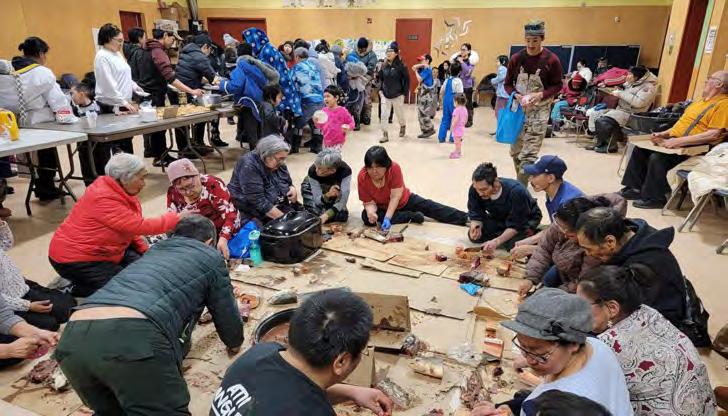
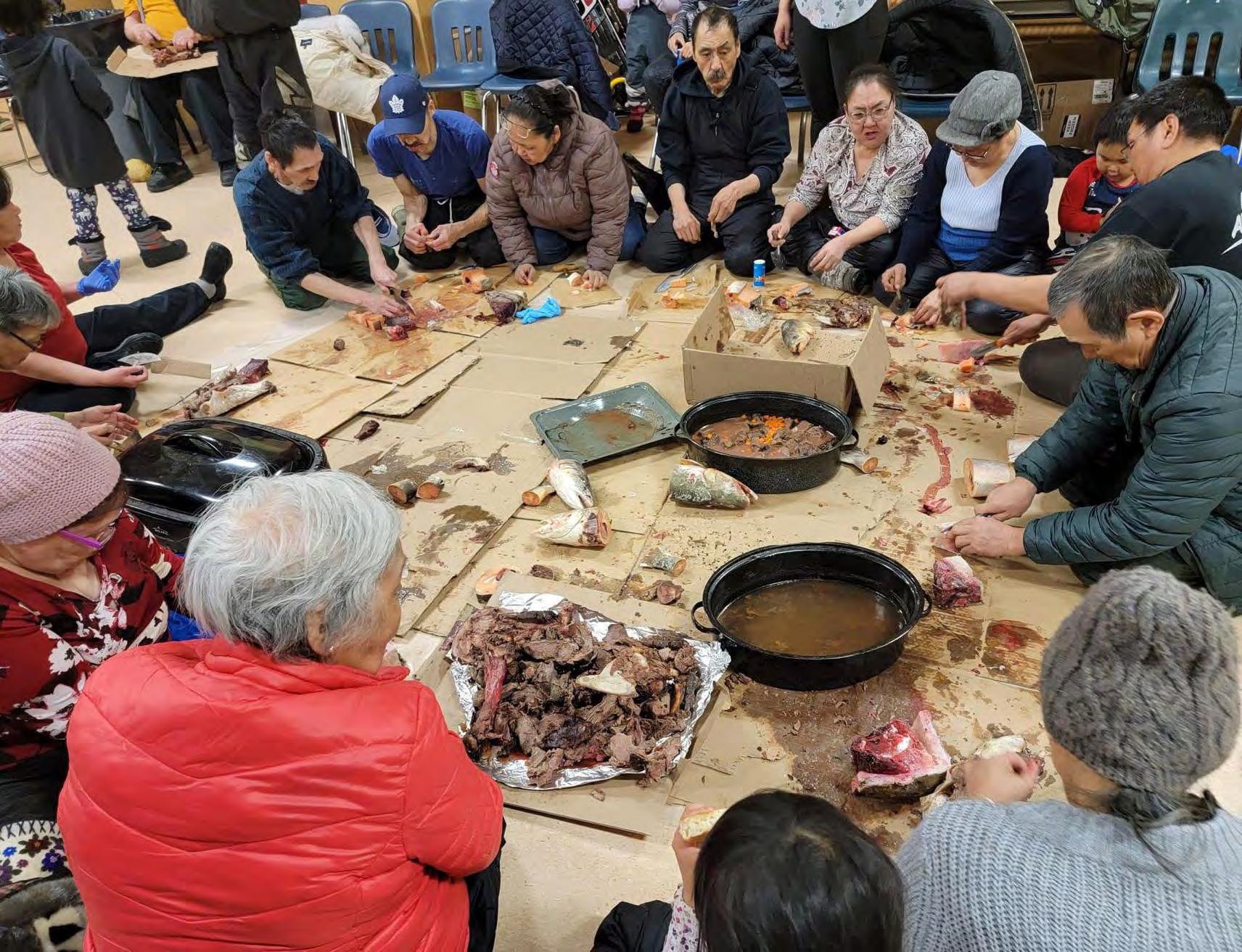 By Stewart Burnett Northern News Services
By Stewart Burnett Northern News Services




The Nunavut Legislative Assembly is mourning the passing of former MLA and deputy commissioner of Nunavut Rebekah Uqi Williams.
“I was saddened to learn of the passing this weekend of former member of the legislative assembly and deputy commissioner of Nunavut Rebekah Uqi Williams,” wrote Tony Akoak, Speaker of the House.
Williams represented the Quttiktuq riding during Nunavut’s first legislative assembly, from 2000, to 2004.
“Ms. Williams had a distinguished career of


public service and made many significant contributions to her community and the territory as a whole. On behalf of all members of the legislative assembly, we extend our condolences to her family,” Akoak added.
The legislative assembly’s community flags for Arctic Bay, Grise Fiord and Resolute Bay have been placed at half-mast in honour of her passing.
On April 12, Iqaluit RCMP received a report of a theft near 297 Siku Crescent (Lower Iqaluit) off of a construction site and are seeking assistance.

The item stolen was a seismograph used to monitor vibrations from daily explosive con-
struction blasting from a Pilitak Enterprises Ltd. construction site.
The seismograph was stored in a small, hard plastic case labelled ‘“storm case”.
The RCMP have also noted the item is of no value to any person unqualified to use it but is essential for the construction crew.
The item has the labels “Unit #80-131 Supergraph, Nomis” and the serial number 11092 on it.
Anyone who has any information regarding this item are asked to call the Iqaluit RCMP at 867-979-1111.



Premier P.J. Akeeagok announced changes to the Government of Nunavut’s senior management team last week.
Jimmy Noble, Deputy Minister of Environment, retired after more than 25 years in the public service. Akeeagok praised Noble’s distinguished career as a public servant working in wildlife and environmental protection in Iqaluit and other Nunavut communities.
“Mr. Noble has spent his career serving Nunavummiut and our territorial interests. His experience and knowledge of our territory’s regulatory affairs are a loss for our government, but we are thankful for his contributions and assistance over the past months in developing a succession plan. We wish him the best in his retirement,” stated Akeeagok in a news release.
Yvonne Niego will also now serve as Deputy Minister of Environment. Niego has been Deputy Minister of Family Services since 2017 and was previously Assistant Deputy Minister of Justice and worked for decades with the RCMP.
Her expertise working with communities and in law enforcement will help provide guidance on the management of Nunavut’s lands and wildlife, stated the release.
Effective April 24, Jonathan Ellsworth will serve as Deputy Minister of Family Services on a six-month term. Ellsworth is currently the Assistant Deputy Minister of Courts and Justice Services with the Department of Justice. He has worked in the justice field for 25 years, with many years of experience supporting those who are working to protect Nunavut’s most vulnerable residents.
Nunavut

The Department of Health is advising Nunavummiut of an increased risk of respiratory illnesses, including infections such as Influenza B across Nunavut.
The best way to protect yourself, your family and your community is to get the flu vaccine, stated the GN in a news release April 14.
“Vaccines help reduce the risk of getting a virus, severe illness or death,” wrote the GN. “The flu vaccine can be given at any time during the flu season. Unlike other vaccines that give lifetime immunity, the flu vaccine must be taken annually.”
The GN also provided these suggestions to limit the spread of respiratory illnesses: stay home when you feel sick; cough or sneeze into your sleeve; wash your hands often; avoid touching your face; throw used tissues in the trash right away; keeping distance from others when out and about; don’t smoke indoors or around others, especially babies; get vaccinated.
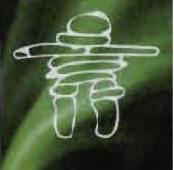
More than 155,000 public servants are now on strike after the country’s biggest federal public-sector union and the government failed to reach a deal by a Tuesday evening deadline. Federal departments and agencies have released a list of services that may be disrupted during the strike.

Here’s an updated list of what services may be affected:
Agriculture and Agri-foods Canada: The department says there may be disruptions to call-taking at the Agriculture and Agri-foods Canada contact centre. Some services that may be disrupted or delayed include AgriInvest, AgriStability, the Poultry and Egg On-Farm Investment Program, the Wine Sector Support Program, the youth employment and skills program and programs under the Sustainable Canadian Agricultural Partnership.
Canada Revenue Agency: Workers from the agency are on strike alongside PSAC members. The agency says benefit payments would be prioritized and the Canada Child Benefit would continue. The CRA is encouraging people to file their taxes online due to delays in processing some income tax and benefit returns, particularly those filed by paper. There may be longer wait times at contact centres. The agency says it has no plans to extend the tax deadline.
Canadian Heritage: The department says that all funding programs will be maintained but there could be delays when it comes to application receipts, funding decisions and issuance of payments.
Fisheries and Oceans Canada and the Canadian Coast Guard: Fisheries and Oceans Canada’s conservation and protection program, health and safety-related fishery closures along with the Canadian Coast Guard’s search and rescue, environmental response and icebreaking services will still be running but may be operating at reduced administrative capacity. Some services that may be partially or fully disrupted include Canadian Coast Guard lighthouses, wrecked vessels, and licensing and funding programs by Fisheries and Oceans.

Canadian Transportation Agency: The agency says it will ensure that the national transportation system will continue to run. There may be some delays to things like dispute resolution and information provision.
Crown-Indigenous Relations and Northern Affairs Canada: Essential services such as the Indian Residential Schools crisis centre, support for hunting, harvesting and community-led food programs, accessing retail subsidy, treaty and negotiations will be maintained, though there may be delays.

Employment and Social Development Canada: Essential services such as the Canada Pension Plan, Old Age Security, employment insurance and social insurance numbers will be maintained. In-person services at Service Canada centres will be limited to clients who need help with those services. The department warns to expect potential delays. Passport services are not deemed essential, so applications and renewals are on hold and limited to those in humanitarian or emergency situations. There would also be partial processing delays to the Temporary Foreign Worker program, the Canada Education Savings Bond, the Canada Disability Savings Grant and the Canada Disability Savings Bond.
Global Affairs Canada: The department says it will maintain essential services such as travel advisories, the EduCanada program and international scholarships program. Services at missions abroad, document authentication services, import and export permits, the CanExport program and international assistance programming may be partially or fully affected.
Immigration, Refugees and Citizenship Canada: Expect serious delays across all immigration streams and for most services, including processing applications, in-person appointments and citizenship ceremonies, passport services and contacting the department. People with immigration-related appointments will be contacted to reschedule or cancelled. Services offered by outside organizations would still be available, and online applications, accounts and emergency services will be maintained.
Indigenous Services Canada: Services such as support for Indigenous businesses, First Nations child and family services, emergency management and funding programs
be disrupted now that workers are on strike. The Canadian Press/Darren Calabrese will be maintained.
The department says services that may be impacted include receiving, renewing or replacing a status card, non-insured health benefits, supporting Inuit children and treaty annuities, estates and trust. They also warn that medical transportation for First Nations may be delayed.
Library and Archives Canada: Service points in Ottawa, Vancouver, Winnipeg and Halifax along with services for the Government of Canada, galleries, libraries, archives and museums will be maintained. There could be delays to ordering archival and published material, requesting copies, making access-to-information requests, making licensing or copyright requests and for services to publishers.
Public Services and Procurement Canada: Services such as direct deposit, pension payments, linguistic services and public notices will be maintained. Services that may be partially or fully disrupted include phone-assisted direct deposit and security screening.
Royal Canadian Mounted Police: Regular police services would continue across the country, but services such as administrative support, media relations, web updates and access to RCMP buildings may be disrupted.
Transport Canada: Essential services would be maintained but services such as public outreach, regulatory work, aircraft services, issuance of licenses, certificates and registrations, transportation security clearances and other motor vehicle safety hotlines could be partially or fully disrupted.
Veterans Affairs Canada: Periodic payments to veterans would continue uninterrupted. That includes disability benefits, income replacement benefits and additional compensation for pain and suffering. The department anticipates a reduced ability to process new payments. New benefit requests or those that are already in the queue will be prioritized on a needs basis.
—By Cindy Tran, The Canadian Press. This story was produced with the financial assistance of the Meta and Canadian Press News Fellowship.
jobs.nnsl.com!

NUNAVUT ADVERTISING HOTLINE • Email: classifieds@nnsl.com
Fax: 867-873-8507 or Email: advertising@nunavutnews.com


EMPLOYMENT, LEGAL NOTICES & TENDERS
867-873-9673 ªúöÀÒ 867-873-8507 classifieds@nnsl.com www.nnsl.com

